第416章 Chapter 25(6)
It is a fact generally admitted by Protestants that the Scriptures give no authority for the change of the Sabbath. This is plainly stated in publications issued by the American Tract Society and the American Sunday School Union. One of these works acknowledges "the complete silence of the New Testament so far as any explicit command for the Sabbath [Sunday, the first day of the week] or definite rules for its observance are concerned."--George Elliott, The Abiding Sabbath, page 184.
Another says: "Up to the time of Christ's death, no change had been made in the day;" and, "so far as the record shows, they [the apostles] did not . .
. give any explicit command enjoining the abandonment of the seventh-day Sabbath, and its observance on the first day of the week."--A. E. Waffle, The Lord's Day, pages 186-188.
Roman Catholics acknowledge that the change of the Sabbath was made by their church, and declare that Protestants by observing the Sunday are recognizing her power. In the Catholic Catechism of Christian Religion, in answer to a question as to the day to be observed in obedience to the fourth commandment, this statement is made: "During the old law, Saturday was the day sanctified; but the church, instructed by Jesus Christ, and directed by the Spirit of God, has substituted Sunday for Saturday; so now we sanctify the first, not the seventh day. Sunday means, and now is, the day of the Lord."As the sign of the authority of the Catholic Church, papist writers cite "the very act of changing the Sabbath into Sunday, which Protestants allow of; . . . because by keeping Sunday, they acknowledge the church's power to ordain feasts, and to command them under sin."--Henry Tuberville, An Abridgment of the Christian Doctrine, page 58. What then is the change of the Sabbath, but the sign, or mark, of the authority of the Roman Church--"the mark of the beast"?
The Roman Church has not relinquished her claim to supremacy; and when the world and the Protestant churches accept a sabbath of her creating, while they reject the Bible Sabbath, they virtually admit this assumption. They may claim the authority of tradition and of the Fathers for the change; but in so doing they ignore the very principle which separates them from Rome--that "the Bible, and the Bible only, is the religion of Protestants."The papist can see that they are deceiving themselves, willingly closing their eyes to the facts in the case. As the movement for Sunday enforcement gains favor, he rejoices, feeling assured that it will eventually bring the whole Protestant world under the banner of Rome.
Romanists declare that "the observance of Sunday by the Protestants is an homage they pay, in spite of themselves, to the authority of the [Catholic]
Church."--Mgr. Segur, Plain Talk About the Protestantism of Today, page 213.